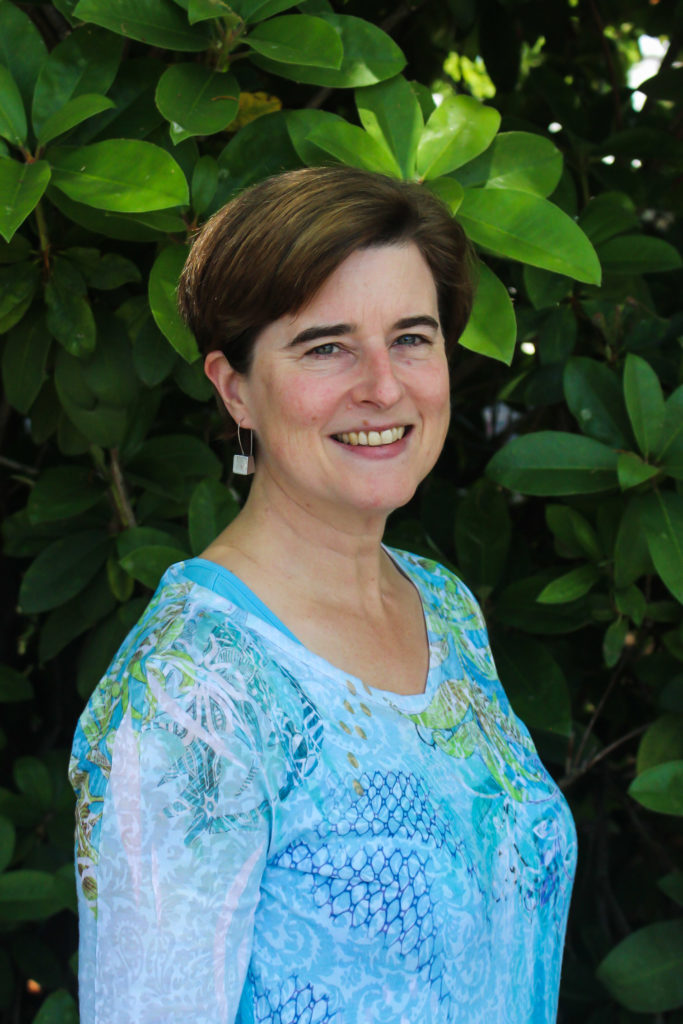
What unique skills or approaches do you offer your clients?
I completed my advanced year of Somatic Experiencing® training in January of 2018 and received my SEP (Somatic Experiencing® Practitioner) certificate in November of 2018 after over 216 hours of training! It’s like getting a second Master’s degree. So I enjoy helping clients understand confusing or distressing feelings, sensations and thoughts in terms of how their nervous system might be trying to protect them and/or trying to help them resolve past trauma or pain. Somatic Experiencing® is the chief theoretical framework I use to guide my clinical practice because it works well and gives people relief right away.
As I’ve learned Somatic Experiencing®, I started using “orienting to the environment with the senses” by inviting clients to “let your eyes go where they want to go,” as a calming strategy in place of relaxation exercises. It’s what wild animals do, and it works.
I frequently see people who are struggling with panic attacks. They often feel relieved when they understand that all of their physical “symptoms” are part of the fight, flight and freeze responses of our biology and that they are normal. I know how to work with these responses to help clients get “completion” and free themselves from the straightjacket of trauma.
I enjoy the positive philosophy of DBT (Dialectical Behavioral Therapy) treatment, which is that “we are always trying to do our best” AND “we can also work toward changing what is not working for us.”
What do clients experience in working with you?
Clients learn that all of their thoughts, feelings and body sensations are meaningful. In traditional talk therapy, we often must rely on conscious recall of events to help us work through emotional distress. But sometimes, we have no conscious memory of the events that hurt us. I’ve worked with clients who have been date raped and weren’t conscious during the traumatic incidents they experienced. Using only the physical sensations in their bodies that emerge in discussing events related to the trauma, I helped them work through the body’s “memory” of the trauma without the need for specific recall of what happened after being drugged.
What do you enjoy about being a psychotherapist?
My greatest strength as a clinician is finding ways to help clients adopt a compassionate stance toward their “symptoms” or coping strategies. Empathy for others (expressed verbally or in body language) comes pretty easily for me, and I think clients sense safety.
What is your specialty?
Trauma! Clients are surprised that I have been seeing clients for over 25 years now, and I love going to work every day. What makes this so rewarding is that the more I learn, the more I see my clients get better faster. So yes, it is so rewarding to see clients break free of the prison of feeling scared, alone, frozen and become confident and alive again.
Another specialty of mine is training in EMDR which I have used to help clients with trauma and also with chronic or persistent pain. I have learned and used an EMDR protocol for treating chronic pain, and I also studied and have used an integrated EMDR technique (IEMDR) for treating migraines.
What have clients appreciated about you?
- My clients like how I consistently understand them from a stance of compassion.
- Clients like my sense of humor, and my ability to laugh at myself and with them when they are funny.
- My natural stance of giving everyone the benefit of the doubt.
- My intellectual flexibility and curiosity, which keeps me looking for better ways to help them.
Work Experience
Education/Licensures
- The Wright Institute, Berkeley, California, 1994–1999
- Ph.D., Psychology, June 1999
- M.A., Psychology, October 1996
- Stanford University, Stanford, California, 1983–1987
- B.A., English literature, interdisciplinary emphasis in French literature and literary theory
- Licensed in Oregon, October 15, 2010
- Licensed in California, March 2001
Clinical Experience
- Behavioral Health Provider in primary care clinics, Providence Medical Group, Portland, OR (06/2015–05/2018) and Virginia Garcia Memorial Health Center/LifeWorks NW, Beaverton, OR (09/2010–05/2015).
- Private Practice, Oakland and Lafayette, CA (11/2008–08/2010).
- Staff Psychologist, Kaiser Permanente Chemical Dependency Services, Walnut Creek, CA (12/2000–5/2008).
- Post-Doctoral Fellow, Kaiser Permanente Department of Mental Health, Martinez, CA (09/1999–08/2000).
- Pre-Doctoral Intern, University Counseling Services, University of Houston, TX (09/1997–08/1998).
- Graduate Student Therapist, Practicums in inpatient and outpatient settings (09/1994–06/1997).
Selected Workshops and Trainings Attended
- Somatic Experiencing® Practitioner training. SEP certificate received November 2018.
- “Through the Eyes of Trauma: EMDR and Ego State Therapy across the Dissociative Continuum,” Sandra Paulsen, PhD, 12/6/14-12/7/14.
- “Treating Chronic Pain with EMDR,” Mark Grant, M.A., 8/29/14-8/30/2014.
- “Integrated EMDR for Migraines,” Steven Marcus, PhD, 8/23-8/24/2013.
- “EMDR with Somatic Disorders,” Phyllis Klaus, LMFT, LMSW, 4/10/2010.
- “Dialectical Behavior Therapy: Hands-On Help for Disorders of Emotion Dysregulation,” Rochelle I. Frank, PhD, 10/24/2009.
- “Using EMDR to Work with Emotional and Physical Pain,” teleseminar Maggie Phillips, PhD and Laurel Parnell, PhD, 12/5/2008.
- “Transforming Trauma with EMDR: Parts I, II, & III,” Laurel Parnell, PhD, 11/16-18/2007, 12/7-9/2007, and 9/26-28/2008.
- “Emotion Regulation Skills for Dialectical Behavior Therapy,” Marsha M. Linehan, PhD, ABPP, 10/31-11/01/2005.
- “Integrating Somatic Awareness in Psychotherapy for Trauma & PTSD,” David V. Baldwin, PhD, at the 109th APA Convention, 8/24/2001.
